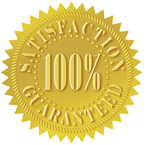|
|
||||||||||||||||||||||||||||||||||||
Disease Conditions
- Abscess
- Acne
- Addiction
- Adenoid Hypertrophy
- Allergic Rhinitis or Hay Fever
- Alopecia Areata
- Alzheimer’s Disease
- Amoebiasis
- Anxiety
- Asthma
- Backache
- Bed-Wetting-Enuresis
- Brain-Tumour
- Cataract
- Cirrhosis of Liver
- Conjunctivitis
- Constipation
- Dengue
- Depression
- Diabetes Mellitus
- Diseases of Prostate
- Eczema
- Epilepsy
- Erectile-Dysfunction
- Gallstones
- Goitre
- Gynaec
- Hepatitis
- Hepatitis-a
- Hepatitis-b
- Hepatitis-e
- Hyperthyroidism
- Hypothyroidism
- IBS - Irritable Bowel Syndrome
- Infertility
- Infertility FAQ
- Male Infertility
- Male Infertility FAQ
- Women Infertility
- Lichen Planus
- Lipoma
- Meningitis
- Menstrual-Disorders
- Migraine
- Molluscum-Contagiosum
- Nasal-Polyps
- Neoplasm
- Nephrotic Syndrome
- Neuralgia
- Osteo Arthritis
- Otitis
- Piles or Hemorrhoids
- Premature-Ejaculation
- Psoriasis
- Rheumatoid Arthritis
- Ringworm
- Schizophrenia
- Sinusitis
- Spondylitis
- Styes
- Tarsal Cyst-Chalazion
- Tonsilitis
- Typhoid
- Urinary-Tract-Infection
- Urticaria
- Vertigo
- Vitiligo
- Warts
Auroh Health Horoscope
Disease A - Z > Addiction > Homeopathic treatment for Addiction
Homeopathy treatment for Addiction
|
||||||||
You might be wondering why on earth your loved seems to be choosing drugs over family. You might be struggling with finances, or even from the painful realization your loved one is in trouble with the law. Or you might be asking yourself why you are taking drugs again, when you swore just a few hours ago that you needed to cut down.
Drug abuse is not a matter of moral weakness or faulty willpower. It is a vicious cycle that actually causes changes in the brain, leading to stronger and stronger impulses to use. Without help, drug abuse destroys families and takes lives. But there is hope. Find out how to recognize the signs and symptoms of drug abuse or addiction in someone you care about or yourself. With the right support and treatment, the road to recovery is possible.
Drug abuse, also known as substance abuse, involves the repeated and excessive use of chemical substances to achieve a certain effect. These substances may be “street” or “illicit” drugs, illegal due to their high potential for addiction and abuse. They also may be drugs obtained with a prescription, used for pleasure rather than for medical reasons.
Different drugs have different effects. Some, such as cocaine or methamphetamine, may produce an intense “rush” and initial feelings of boundless energy. Others, such as heroin, benzodiazepines or the prescription oxycontin, may produce excessive feelings of relaxation and calm. What most drugs have in common, though, is over stimulation of the pleasure center of the brain. With time, the brain’s chemistry is actually altered to the point where not having the drug becomes extremely uncomfortable and even painful. This compelling urge to use, addiction, becomes more and more powerful, disrupting work, relationships, and health.
What Are Substance Abuse and Addiction ?
The difference between substance abuse and addiction is very slight. Substance abuse means using an illegal substance or using a legal substance in the wrong way. Addiction begins as abuse, or using a substance like marijuana or cocaine. You can abuse a drug (or alcohol) without having an addiction. For example, just because Sara smoked weed a few times doesn't mean that she has an addiction, but it does mean that she's abusing a drug — and that could lead to an addiction. Addiction means a person has no control over whether he or she uses a drug or drinks. Someone who's addicted to cocaine has grown so used to the drug that he or she has to have it. Addiction can be physical, psychological, or both.
 |
|
Physical Addiction
Being physically addicted means a person's body actually becomes dependent on a particular substance (even smoking is physically addictive). It also means building tolerance to that substance, so that a person needs a larger dose than ever before to get the same effects. Someone who is physically addicted and stops using a substance like drugs, alcohol, or cigarettes may experience withdrawal symptoms. Common symptoms of withdrawal are diarrhea, shaking, and generally feeling awful.
Psychological Addiction
Psychological addiction happens when the cravings for a drug are psychological or emotional. People who are psychologically addicted feel overcome by the desire to have a drug. They may lie or steal to get it. A person crosses the line between abuse and addiction when he or she is no longer trying the drug to have fun or get high, but has come to depend on it. His or her whole life centers around the need for the drug. An addicted person — whether it's a physical or psychological addiction or both — no longer feels like there is a choice in taking a substance.
Signs of Addiction
The most obvious sign of an addiction is the need to have a particular drug or substance. However, many other signs can suggest a possible addiction, such as changes in mood or weight loss or gain. (These also are signs of other conditions, too, though, such as depression or eating disorders.)
Signs that you or someone you know may have a drug or alcohol addiction include
 |
|
Psychological signals
- use of drugs or alcohol as a way to forget problems or to relax
- withdrawal or keeping secrets from family and friends
- loss of interest in activities that used to be important
- problems with schoolwork, such as slipping grades or absences
- changes in friendships, such as hanging out only with friends who use drugs
- spending a lot of time figuring out how to get drugs
- stealing or selling belongings to be able to afford drugs
- failed attempts to stop taking drugs or drinking
- anxiety, anger, or depression
- mood swings
Physical signals
- changes in sleeping habits
- feeling shaky or sick when trying to stop
- needing to take more of the substance to get the same effect
- changes in eating habits, including weight loss or gain
What causes drug abuse and addiction?
What makes one person abuse drugs to the point of losing their home, their family and their job, while another does not? There is no one simple reason. Drug abuse and addiction is due to many factors. A powerful force in addiction is the inabilities to self- soothe or get relief from untreated mental or physical pain.
- Family history of addiction. While the interplay between genetics and environment is not entirely clear, if you have a family history of addiction, you are at higher risk for abusing drugs
- History of mental illness. Drug abuse can worsen mental illness or even create new symptoms
- Untreated physical pain. Without medical supervision, pain medications or illegal drugs like heroin can rapidly become addictive
- Peer pressure. If people around you are doing drugs, it can be difficult to resist the pressure to try them, especially if you are a teenager
 |
|
Getting Help
If you think you're addicted to drugs or alcohol, recognizing that you have a problem is the first step in getting help.A lot of people thinks they can kick the problem on their own, but that doesn't work for most people. Find someone you trust to talk to. It may help to talk to a friend or someone your own age at first, but a supportive and understanding adult is your best option for getting help. If you can't talk to your parents, you might want to approach a school counselor, relative, doctor, favorite teacher, or religious leader
Unfortunately, overcoming addiction is not easy. Quitting drugs or drinking is probably going to be one of the hardest things you've ever done. It's not a sign of weakness if you need professional help from a trained drug counselor or therapist. Most people who try to kick a drug or alcohol problem need professional assistance or a treatment program to do so
Tips for Recovery
Once you start a treatment program, try these tips to make the road to recovery less bumpy
- Tell your friends about your decision to stop using drugs. Your true friends will respect your decision. This might mean that you need to find a new group of friends who will be 100% supportive. Unless everyone decides to kick their drug habit at once, you probably won't be able to hang out with the friends you did drugs with before
- Ask your friends or family to be available when you need them. You may need to call someone in the middle of the night just to talk. If you're going through a tough time, don't try to handle things on your own — accept the help your family and friends offer
- Accept invitations only to events that you know won't involve drugs or alcohol. Going to the movies is probably safe, but you may want to skip a Friday night party until you're feeling more secure. Plan activities that don't involve drugs. Go to the movies, try bowling, or take an art class with a friend
- Have a plan about what you'll do if you find yourself in a place with drugs or alcohol. The temptation will be there sometimes, but if you know how you're going to handle it, you'll be OK. Establish a plan with your parents or siblings so that if you call home using a code, they'll know that your call is a signal you need a ride out of there
- Remind yourself that having an addiction doesn't make you bad or weak. If you fall back into old patterns (backslide) a bit, talk to an adult as soon as possible. There's nothing to be ashamed about, but it's important to get help soon so that all of the hard work you put into your recovery is not lost
Auroh Advanced Homeopathic Treatment for Addiction
homeopathy is a non-toxic system of medicine that uses highly-diluted remedies to treat illness and relieve discomfort in a wide variety of health conditions. It is thought that homeopathic remedies are able to stimulate a person’s bodily systems to deal with stress and illness more efficiently
Auroh homeopathy helps at three levels, detoxification, the present physical condition and the actual state of mind. The first level is the actual condition of the patient. Although at this moment homeopathy is not used during the period of detoxification. Most patients we see for the first time have actual problems
homeopathy helps to overcome addiction. In the treatment of addiction homeopathy can prove its worth as part of mainstream medicine, especially when conducted by a team within a regular clinic
At Auroh we undertake study of each Addiction as separate entity and do in-depth evaluation of the problem as well as patient as person. It means, we understand the patient and his/her problems more deeply, with regards to its symptoms, its diagnosis as well as its probable genetic background. The study also involves deep evaluation of the mind and emotions. After appreciating the patients in his totality, a suitable medicine called as 'constitutional medicine' is selected for the patient. The medication based on such foundation brings deeper level healing process for the sufferers of Addiction
homeopathy Is strongly recommended for Addiction
| talk to our doctors right now |  |
|
| consult our experts | ||
 |
leave your number we will call you back |
|
| start auroh health treatment |
Your doctor is just a click away |
Treatment |










